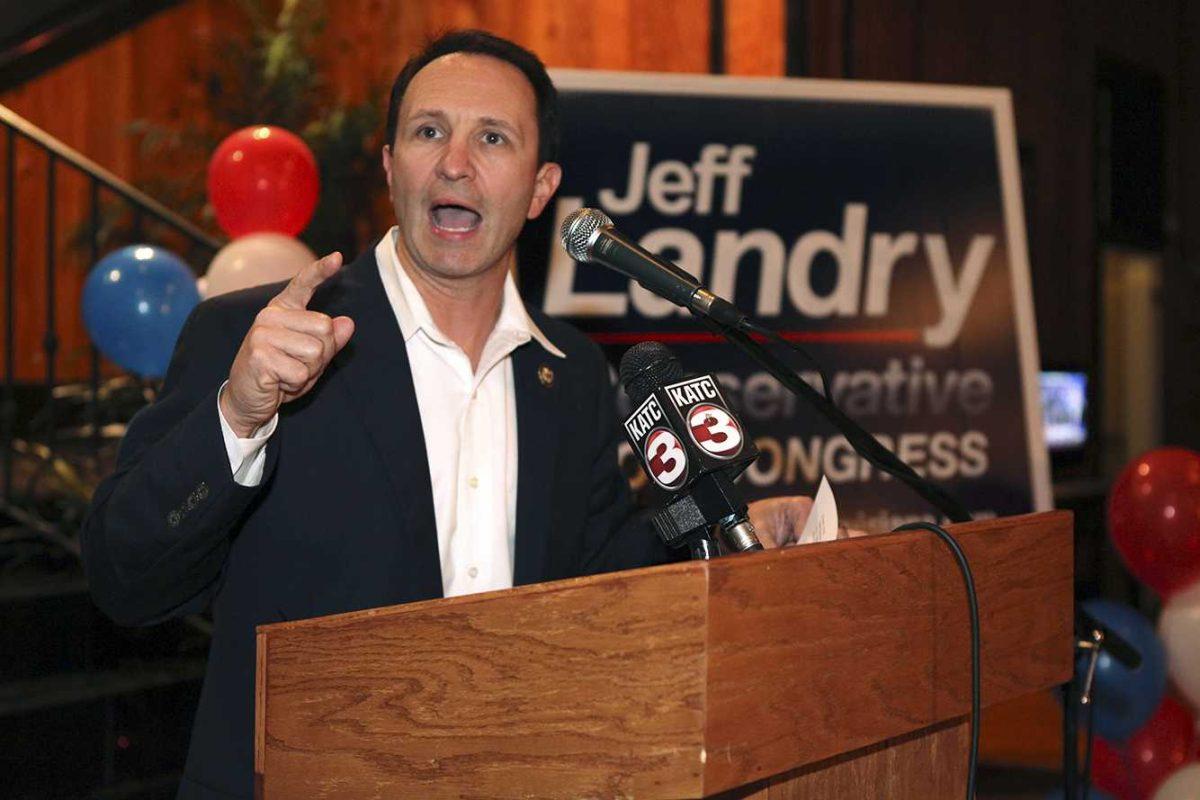Louisiana Attorney General Jeff Landry called on LSU to punish mass communication professor Bob Mann for insulting his assistant on Twitter following the LSU Faculty Senate’s Dec. 7 meeting.
Mann referred to Assistant Attorney General Lauryn Sudduth as Landry’s “flunkie,” following her appearance at the latest Faculty Senate Meeting.
“[Mann’s] disparaging remarks about this LSU alumna can not be without consequence,” Landry tweeted Wednesday. “I have spoken with President Tate and expressed my disdain and expectation for accountability.”
Mann called for LSU to defend faculty rights to free speech following the attorney general’s comments.
“Landry should have someone in his office explain the First Amendment to him,” Mann told the Reveille. “Citizens, even college professors, are still allowed to criticize elected officials and the public employees who work for them.”
Keith Whittington, chair of the Academic Committee of the Academic Freedom Alliance, sent a letter to LSU President William Tate IV asking the university not to take action against Mann, calling Landry’s request “a clear threat to [Mann’s] academic freedom.”
“Regardless of what one thinks about Professor Mann’s tweet, the only appropriate action that LSU should take in this situation is to publicly reaffirm the free speech rights of the members of its faculty,” Whittington wrote.
In a statement to The Reveille, LSU President William Tate IV said “As president of LSU, I am deeply committed to First Amendment rights. LSU is committed to free and open scholarship and the freedom to debate ideas and principles without interference.”
Landry’s assistant, Sudduth, appeared at the Faculty Senate meeting Tuesday on behalf of Landry to read a letter condemning a Faculty Senate resolution sponsored by Mann and several other professors. The letter was signed by Landry.
The resolution in question, 21-06, “A Call to Bring LSU’s Vaccine Mandate into Conformity With State Law and National Guidelines,” calls for LSU to test unvaccinated and partially vaccinated students weekly and asks the university to update its COVID vaccination exemption procedure.
Landry’s letter seemed to misunderstand the resolution.
“Students in Louisiana are entitled by law to opt out of otherwise required vaccines by simply dissenting,” Landry wrote. “Nothing in State law permits a school to override a student’s written dissent.”
The resolution does not call for the university to abolish the exemption process or to override a student’s dissent. Instead, it calls on the university to require a written statement from students seeking exemption rather than the current opt-out procedure, which only asks students to check a box stating what kind of exemption they are seeking.
Landry’s letter also takes issue to LSU having a vaccine mandate.
“I believe mandating the COVID-19 vaccine as opposed to recommending the COVID-19 vaccine is problematic,” Landry wrote.
While the Faculty Senate and the Faculty Council called on LSU to implement a vaccine mandate in the months leading up to the fall semester, LSU did not implement a mandate until August, after the Pfizer vaccine was approved by the U.S. Food and Drug Administration and the university received approval from the Louisiana Department of Health.
“Any attempt to retaliate or discriminate against a student that chooses to dissent to vaccine mandates would be a violation of state law, and it may subject the university and its employees to lawsuits or liability,” Landry wrote.
While the resolution does ask the university to enforce a more stringent testing protocol on unvaccinated students, the university already singles out unvaccinated students to be tested once a month.
“Listening to his letter be read, I got the impression that he hasn’t read the resolution and doesn’t know what it says,” said philosophy professor Jeffrey Roland, a sponsor of the resolution.
After hearing from Sudduth, the assistant attorney general, and others about the resolution, the faculty senate voted to defer action on it until January on the suggestion of political science professor Daniel Tirone, who stated the sponsors wanted to observe the development of the Omicron variant before recommending action.
The attorney general also included COVID misinformation in the letter unrelated to the resolution. Landry falsely claimed that COVID-19 is not a vaccine-preventable disease.
“Vaccine preventable” refers to a vaccination’s ability to significantly “reduce the high amount of morbidity and mortality inflicted by a pathogen upon a population in the absence of widespread deployment of a vaccine,” Louisiana health officer Dr. Joe Kanter said at the Dec. 6 House Committee on Health and Welfare meeting, where Landry made the same claim.
Individuals vaccinated against COVID-19 are six times less likely to contract the disease and 14 times less likely to die from it, Kanter said. The CDC and LDH have been clear in stating that COVID-19 vaccinations are safe and effective against the virus.
Attorney General Jeff Landry did not respond to the Reveille’s request for comment.




